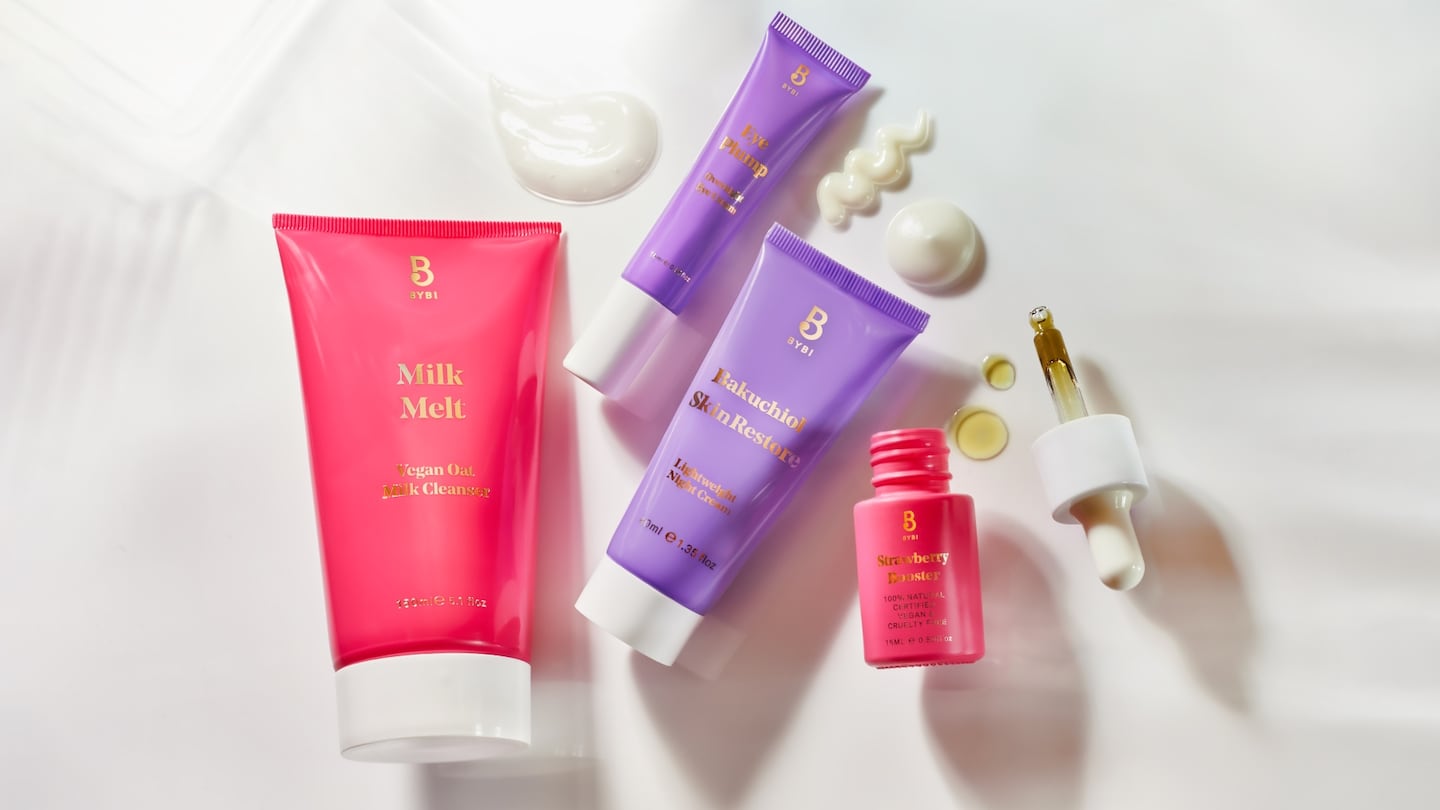
The Business of Fashion
Agenda-setting intelligence, analysis and advice for the global fashion community.

Agenda-setting intelligence, analysis and advice for the global fashion community.

London-based womenswear label Boden may be British at heart, but today, it’s the US that is its biggest market.
The brand, known for its flared and printed dresses, began targeting American consumers with catalogues in 2002, after seeing 3,000 US-based orders that year.
By 2007, Boden was generating $50 million in US sales and operating a fulfilment centre in Scranton, Penn. Last year, its US sales reached $185 million, accounting for 40 percent of overall sales.
Boden may be a transatlantic success story, but they’re more the exception than the norm. For every Boden or Sweaty Betty — the London-based activewear brand that entered the US in 2013 and was acquired by American footwear maker Wolverine Worldwide in August 2021 for $410 million — there are countless others that struggle to distinguish themselves in the market.
ADVERTISEMENT
Despite plenty of cultural overlap and sharing a common language, there are differences that make the US difficult for British brands to penetrate. Going from an island with a population of around 60 million to a continent-spanning nation of more than 300 million requires catering to more regions and customer types. US shoppers also have an abundance of choice and loyalty is not guaranteed.
The market isn’t cheap either: Opening facilities or working with third-party logistics firms in the US can require more capital because goods are being sent further; wage differences can make hiring more expensive and the sheer volume of competing brands are driving up customer acquisition costs online.
“It’s easy to get lost in the US,” said Frederic Court, founder of UK-based venture capital firm Felix Capital, which has invested in numerous start-ups in the US, UK and Europe. “The market is so noisy.”
Still, a new crop of UK upstarts are trying. Social media makes it easier to determine in advance how a brand might be received in America. As well, Brexit has made it harder for UK brands to operate in Europe, making the US a more compelling proposition.
To break through, newer entrants like skin care start-up Bybi and The Inkey List, which sells skin, hair and scalp care products, have adopted similar strategies to US-based DTC brands. This includes forming wholesale partnerships to drive down operational costs; slowly investing in online stores to develop direct relationships with customers; and experimenting with marketing channels that US shoppers are more apt to engage with than the consumers in their home market.
Forging relationships with established retailers is a way for UK brands to determine which US regions will drive their sales without burning cash.
Skin care brand Bybi, for example, inked a partnership with Target in January 2021, stocking its products in more than 1,000 locations. It used its partnership with Target to understand where its biggest fans were — the coasts, it turned out — and then target consumers there on social media and other channels to bring them to the brand’s site. By the end of that year, the US accounted for 50 percent of the company’s annual sales.
The US expansion “was quite strong to start off because we launched with a large distribution partnership,” said Dominika Minarovic, co-founder of Bybi.
ADVERTISEMENT
It’s a strategy that it previously employed in its home market. Bybi has partnered with multi-brand retailers like Holland & Barrett and Boots in the UK and Sephora in Europe.
The Inkey List also leaned on large retailers to make its debut in the US, just six months after launching the brand in the UK. The cosmetics brand began selling in the US in April 2019 through Sephora.
The partnership with Sephora helped The Inkey List delay the upfront costs of entering the US that brands that solely sell direct-to-consumer face, such as setting up local warehouses in order to quickly deliver products, staffed by workers that can cost at least 20 to 30 percent more than in the UK. The brand didn’t make its own US-based site shoppable until spring 2020, almost a year after it began selling in the US.
“If you have wholesale interest, it’s quite easy to go after [the US],” Court said. “It’s a great way to test a market in a selective manner.”
American consumers have more brands to choose from than their British counterparts, which can make it harder for UK-based brands to build demand for their DTC channels in the States. To cut through, brands have localised their operations and experimented with marketing channels that US customers are responsive to.
In 2020, The Inkey List’s DTC sales made up less than 10 percent of total revenues. To help increase online sales, the company hired a local team in the US, including a head of global growth and someone to run customer acquisition marketing, who use company data and knowledge of the market to better target shoppers.
The brand also started investing in text message marketing campaigns in the US last October to create personalised communication with local consumers, alerting them of product launches that fit their specific needs. The company has amassed around a quarter of a million text message subscribers.
“It’s shocking how successful it is in the US,” said Colette Laxton, co-founder and co-CEO of The Inkey List. “The UK [consumer] is like, ‘Hell no, leave me alone.’”
ADVERTISEMENT
Its DTC channels now account for around 16 percent of global revenue, and the US makes up more than 40 percent of its overall DTC sales.
Similarly, Bybi invested in a marketing tactic it doesn’t use in the UK when it began mailing one page ads to prospective customers in the US in September 2021. This led to a 5 percent increase in traffic on the brand’s own site, which accounts for around 20 percent of its sales in the US.
And while rising customer acquisition costs can make DTC an increasingly challenging business — much more than when Boden made its entrance to the market — brands say shoppers in the US are more open to buying from them directly than customers in the UK, who still rely on retailers to drive their purchasing decisions.
“The UK is quite a traditional retail environment,” Minarovic said. “Bricks and mortar still dominate for trust and legitimacy.”
Felix Capital is part of a group of investors who, together, hold a minority interest in The Business of Fashion. All investors have signed shareholder’s documentation guaranteeing BoF’s complete editorial independence.
Digital brands that once steered clear of Amazon are more open to selling on the marketplace, as the e-commerce slowdown and rising marketing costs makes it harder to find customers on their own.
When even Glossier and Allbirds are signing deals with multi-brand retailers, it’s clear the go-it-alone era is over. Here’s how some new brands are building wholesale into their business plan from the get-go.
In a saturated market where customer acquisition costs are on the rise, fashion and beauty start-ups are exploring ways to boost repeat business.

Malique Morris is Direct-to-Consumer Correspondent at The Business of Fashion. He is based in New York and covers digital-native brands and shifts in the online shopping industry.
The DTC bust of the past two years has casted a cloud on the sector, but emerging fashion brands with a better handle on supply, demand and customer retention are seeing profitable growth.
In London, where independent labels have been hit hard by the implosion of key stockist Matches, brands like Clio Peppiatt, Marfa Stance and Completedworks have grown direct-to-consumer businesses that peers can learn from.
Apparel start-ups founded on the promise of offering men the perfect T-shirt are proving resilient in an otherwise dreary DTC sector rampant with fire sales, bankruptcies and steep revenue declines.
Apparel brands Knot Standard and Billy Reid are teaming up in a move investors say we may see more of as fashion start-ups seek alternative funding routes to grow their businesses.